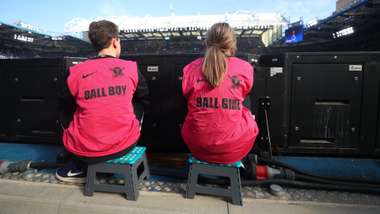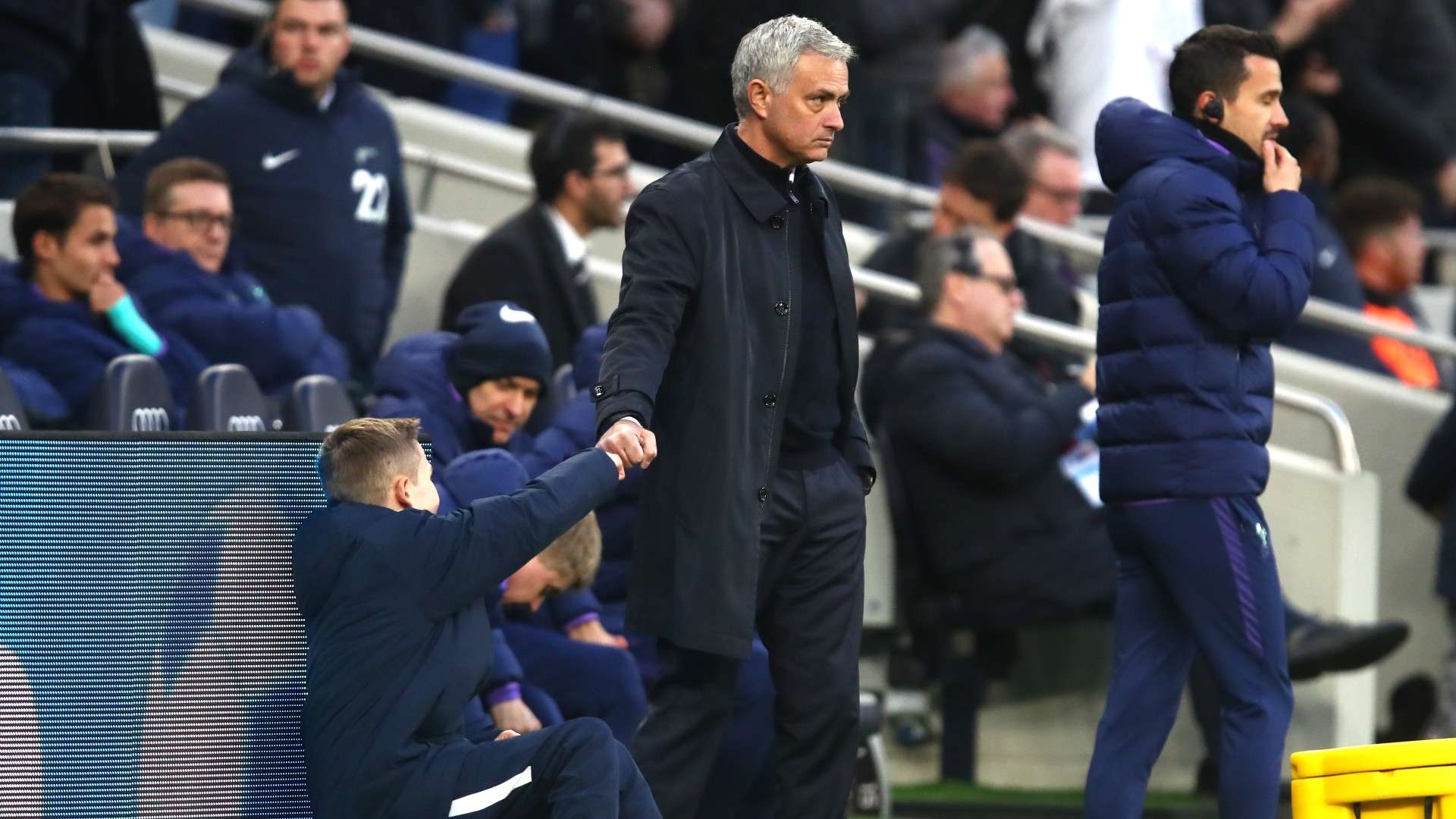Football managers and players at the very highest level of the game find themselves performing under the brightest of spotlights, with instant success now demanded in every corner of the globe despite a finite number of trophies being up for grabs.
With so much resting on each passing fixture, it comes as no surprise to find that tactics are taking on ever-increasing importance – with coaches around the world seeking marginal gains that will offer them an upper hand in direct combat with any rival.
The role that ball boys and ball girls play in the process can be overlooked at times, as they find themselves on the periphery of proceedings, but they may be more important than you think. Why is that the case and how are those roles on the sidelines filled? GOAL takes a look...
How to become a ball boy or ball girl in football
The majority of ball boys and girls are selected from the respective academy systems of the clubs involved in whatever fixture requires their presence.
The average age of those filling such a role is reported to be 15, although Manchester City are said to dip into their U12 and U14 youth ranks when looking to fill positions along the touchline and behind the goal.
There is no set age limit for ball boys and girls, with decisions left in the hands of teams around the world when it comes to choosing who they use and when.
While youth ranks are used to fill most of those positions, plenty of teams select youngsters from local leagues and schools that boast ties to the club in question.
 Getty
GettyHow do football managers use ball boys?
While ball boys and girls were once merely there to prevent players from having to go and retrieve the ball themselves when it went out of play, they now have an important part to play.
An ever-growing number of coaches have recognised the value in working with those who are chosen to patrol the touchlines.
Manchester City boss Pep Guardiola is said to have gone out of his way to talk up the role that ball boys and girls had to play in a Champions League quarter-final clash with Atletico Madrid at the Etihad Stadium on April 5, 2022.
The Catalan tactician reportedly recorded a video message for the youngsters plucked from the Blues’ academy ranks, with an inspirational pre-game rallying call making them aware that they were very much “part of a big match plan”.
Guardiola wanted to ensure that Atletico were not allowed to engage in any time-wasting antics, with it requested that balls be returned to players from both sides as quickly as possible.
City went on to win the game 1-0, while ultimately progressing to the semi-final stage, so, in theory, the concept worked to an extent.
Another example of quick-thinking from a ball boy during a high-profile European encounter allowed Liverpool to complete their remarkable fightback against Barcelona in May 2019.
The Reds needed goals in order to make the Champions League final that season, as they found themselves trailing by three, and stunned their La Liga opponents by drawing level on aggregate inside 56 minutes.
Divock Origi then registered a famous tie-winning strike in the 79th-minute, with the ball passed quickly to Trent Alexander-Arnold as he prepared to take a corner, allowing a low delivery that was drilled into the box to catch Barca napping as a Belgian forward swept home.
Later that year, in November 2019, then Tottenham manager Jose Mourinho talked up the footballing brain of 15-year-old ball boy Callum Hynes when his quick reactions contributed to Serge Aurier taking a throw which led to Harry Kane finding the target in a Champions League meeting with Olympiacos that Spurs would go on to win 4-2.
Mourinho said: "I love intelligent ball boys like I was. I was a brilliant ball boy as a kid. And this kid today was brilliant. He reads the game, understands the game and made an important assist.
"He's not there just to look to the stands, lights or scarves. He's living the game and playing it very well."
There have also been countless instances down the years of ball boys and girls being given towels that can be used to help dry the ball for those that favour a long throw – with said act of generosity not always extended to players from both sides.
Are ball boys and ball girls allowed to waste time?
While benefits have been found in getting ball boys and girls to speed up play, they can often be encouraged to slow things down.
Time wasting is not allowed on or off the field, with cards handed out to players and coaches who seek to run down the clock, but it is virtually impossible to eradicate entirely.
Any side clinging on to a lead heading into the final stages of any given contest is going to be in no rush to get on with the game.
One famous incident of a ball boy getting heavily involved in that process came in January 2013 when Charlie Morgan took to lying on the ball during a League Cup clash between Swansea City and Chelsea.
Blues star Eden Hazard did not take too kindly to those antics and was shown a straight red card after trying to kick the ball free.
Following a Europa League semi-final clash against Eintracht Frankfurt in 2022, West Ham boss David Moyes apologised to a ball boy after kicking a ball in his direction in a moment of anger.
Moyes explained: "He threw it very short when he could’ve thrown me the ball, he chose to leave it short but as I said, I apologise for that but it was a big game we were trying to win."
There was also a coming together between player and ball boy in April 2022 when Exeter defender Chieck Diabate pushed an antagonistic youngster that rolled the ball away from him as he went to take a throw-in.
Should managers use ball boys and ball girls to their advantage? Let us know your thoughts about the tactics in the comments! 👇

